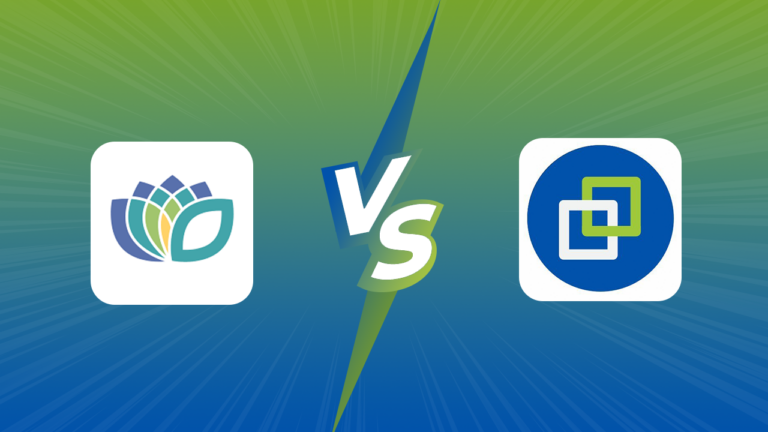SEO ensures search engines understand your content, aiding users in discovering your site. This guide outlines common improvements to enhance your site’s presence in search results. Following best practices in search engine optimization increases the likelihood of appearing in Google’s search results. While there are no shortcuts to top rankings, adhering to these practices facilitates better crawling, indexing, and comprehension of your content by search engines.
Table of Contents
ToggleHow Google Search Works: A Brief Overview
Google, a fully automated search engine, utilizes crawlers to scour the web for pages to index. Once published, your site is usually found and added automatically. This process drives the majority of sites listed in search results. Additional documentation is available for those seeking deeper insights into Google’s discovery and indexing procedures.
Impact in Search Results: What to Expect
Changes made to your website will take time to reflect in Google’s search results. While some adjustments may be noticed within hours, others could take several months. Typically, it’s advisable to wait a few weeks to evaluate the effectiveness of your efforts. Remember, not all changes will yield immediate results, so consider iterating and testing different strategies if necessary.
Also Read: Maximizing Online Presence: WordPress SEO Strategies in Edinburgh
Help Google Find Your Content
- Check Indexing Status: Use the “site:” search operator to see if Google has indexed your site.
- Encourage Natural Links: Other sites linking to yours help Google discover your content.
- Submit a Sitemap: Consider submitting a sitemap to help Google find all your important URLs.
Ensure Google Can View Your Page
- Optimize for Crawlability: Ensure Google can access essential resources like CSS and JavaScript.
- Consider Geolocation: Check if Google sees your page from its US-based crawler’s location.
- Use URL Inspection Tool: Assess how Google views your page using the URL Inspection Tool in Google Search Console.
Manage Indexing Preferences
- Opt-Out Options: If needed, use methods to prevent certain content from appearing in Google search results.
Also Read: Search Engine Optimization (SEO) for Your Membership Site
Organize Your Site for Better SEO

When setting up or redesigning your website, consider organizing it logically to enhance both user experience and search engine optimization (SEO). Here’s how you can improve your site’s structure and content organization:
Use Descriptive URLs
- Include keywords in URLs to help users and search engines understand the content.
- Opt for clear, logical URLs like “https://www.example.com/pets/cats.html” over random identifiers.
Group Topically Similar Pages
- Use directories (or folders) to group related content, aiding Google in understanding your site’s structure.
- Organize content into directories based on topic similarity to facilitate crawling and indexing.
Reduce Duplicate Content
- Duplicate content under different URLs can confuse users and waste crawling resources.
- Specify a canonical URL for each piece of content to avoid duplicate content issues and ensure a better user experience.
Also Read: 10 Best E-Commerce Platforms For SEO In 2024
Creating Compelling and Useful Content
When building your website, prioritize content creation with your users in mind. Compelling and useful content not only engages visitors but also improves your site’s visibility in search results. For marketing professionals seeking an effective solution for SEO reporting managing data from various platforms is essential. Software that provides integrated analytics and customizable report templates can significantly streamline the process, enabling you to focus on strategic decisions and client communication. Here’s how to enhance your content:
- Easy-to-Read Text: Ensure your content is well-written, organized, and easy to understand. Break up long content with paragraphs and headings for better readability.
- Unique Content: Avoid copying others’ content; create original content based on your knowledge and expertise.
- Up-to-date Information: Regularly update your content to ensure its relevance and accuracy.
- Helpful and Reliable: Provide valuable information that your readers will find helpful and trustworthy, using expert or experienced sources when necessary.
Anticipating User Search Terms
- Understand Search Behavior: Consider the keywords users might use to find your content and tailor your writing accordingly.
- Google’s Language Matching: Trust in Google’s sophisticated language matching systems to understand the relevance of your content to various search queries.
Avoiding Distracting Advertisements
- Maintain User Experience: Ensure ads don’t hinder user experience or distract from your content.
Linking to Relevant Resources
- Use Links Effectively: Incorporate links to connect users and search engines to other relevant pages, enhancing the value of your content.
- Write Good Link Text: Use descriptive anchor text to provide context for linked pages.
- Exercise Caution: Only link to trusted resources, and consider adding nofollow annotations to links when necessary to protect your site’s reputation.
Influence Your Google Search Appearance
Title Links
Write clear, concise, and unique titles that accurately describe your page’s content. Use important keywords and information about your website or business. Most CMS platforms automatically generate <title> elements based on your page titles.
Snippets
Craft compelling page descriptions to appear below your title links. Snippets are sourced from your page content or meta description tags. Keep them succinct, relevant, and unique to each page to entice users to click. Optimize meta descriptions for maximum impact on search results.
Optimizing Images and Videos for Search
- High-Quality Images: Use sharp, clear images near the relevant text to provide context and aid understanding.
- Descriptive Alt Text: Write descriptive alt text for images to help search engines understand the content and context of your images.
- Video Optimization: Create high-quality video content and embed videos near relevant text. Write descriptive titles and descriptions for videos.
Effective Website Promotion
- Social Media: Promote your content on social media platforms to reach a wider audience.
- Community Engagement: Engage with online communities related to your niche to increase visibility and attract interested users.
- Advertisement: Utilize both offline and online advertising methods to promote your website.
- Word of Mouth: Encourage word-of-mouth promotion by providing valuable content that users are inclined to share with others.
Also Read: What Is Programmatic SEO?
Common SEO Misconceptions
- Meta Keywords: Not considered by Google for ranking.
- Keyword Stuffing: Overusing keywords violates Google’s policies.
- Domain Name Keywords: Minimal impact on ranking; choose based on branding.
- Content-Length: No fixed word count; focus on relevance and quality.
- Subdomains vs. Subdirectories: Choose based on organizational needs.
- PageRank: One of many signals; not the sole ranking factor.
- Duplicate Content: Multiple URLs for the same content are acceptable.
- Headings Order: Semantic order aids accessibility but doesn’t affect ranking.
- E-A-T Ranking Factor: Expertise, Authoritativeness, and Trustworthiness are not direct ranking factors.
Conclusion On Search Engine Optimization
SEO is the cornerstone of making your content discoverable by search engines and users. By following the best practices outlined in this guide, you enhance your site’s presence in search results and improve its chances of being found by your target audience. Remember, search engine optimization is an ongoing process that requires patience and persistence, but the rewards are worth it in the form of increased visibility and traffic to your website.
Interesting Reads:
Mastering SEO and Content Trends 2024 Blueprint
Elevating Your Sydney Business: The Power of WordPress SEO
Beyond Rankings: Exploring the Comprehensive Benefits of SEO








